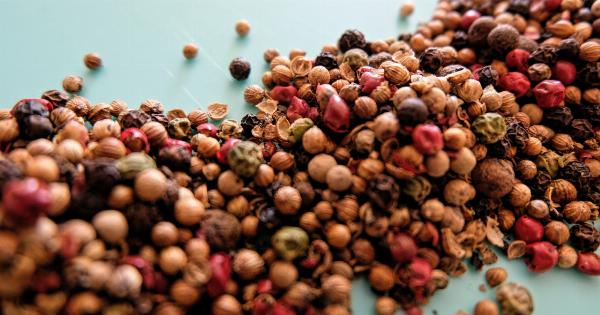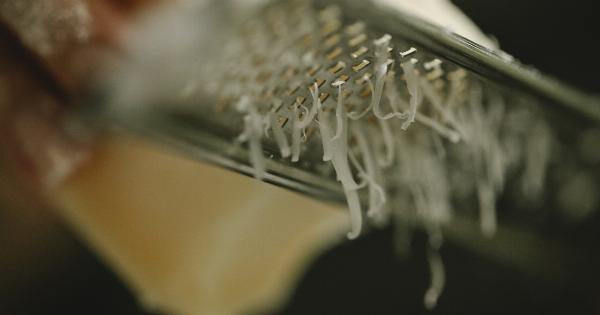When it comes to cheese, there is a wide variety available in the market. However, not all cheese is created equal. Some are good for your health, while others may have negative effects on your well-being.
In this article, we will explore the different types of cheese and how to make the right choices to ensure you enjoy a delicious and healthy cheese experience.
The Benefits of Good Cheese
Cheese is a rich source of several essential nutrients, including calcium, protein, and vitamins. When consumed in moderation, good cheese can have numerous health benefits.
Calcium is crucial for bone health, and cheese is one of the best dietary sources of this mineral. Additionally, cheese contains high-quality protein, which is essential for muscle growth and repair. It also provides essential vitamins like vitamin A, vitamin B12, and riboflavin.
The Downside of Bad Cheese
While good cheese offers several health benefits, bad cheese can have negative effects on your health. Some cheeses, especially processed ones, may be high in saturated fats and sodium.
Excessive consumption of these unhealthy cheeses can increase the risk of heart diseases and high blood pressure. It is important to be cautious and make informed choices to avoid these adverse effects on your health.
Identifying Good Cheese
With so many cheese options available, how can you identify the good ones? Here are a few factors to consider:.
1. Natural and Artisan Cheeses
Opt for natural and artisan cheeses that have been traditionally made using high-quality ingredients and minimal additives. These cheeses are often less processed and contain fewer artificial preservatives.
2. Organic Cheese
Choosing organic cheese ensures that the milk used comes from cows that have been raised without the use of antibiotics or growth hormones. It also means that the cheese is made using organic farming practices, which are more environmentally friendly.
3. Reduced-Fat Options
If you are watching your fat intake, opt for reduced-fat versions of cheese. These options contain less saturated fat and can be a healthier choice for those looking to manage their weight or cholesterol levels.
4. Aged Cheese
Aged cheeses like Parmesan, aged cheddar, or Gouda tend to have a more intense flavor and a stronger aroma. They are often packed with nutrients and have undergone a natural fermentation process, which can increase their health benefits.
Avoiding Bad Cheese
To make the right choices, it’s essential to know what types of cheese to avoid:.
1. Processed Cheese
Avoid processed cheese as it usually contains a higher amount of additives, artificial flavors, and preservatives. These cheeses may lack the nutritional value of natural and artisanal varieties.
2. Sodium Overload
Some cheeses, like blue cheese or feta, can be high in sodium content. If you are managing your sodium intake or have high blood pressure, it’s important to choose low-sodium options or consume these cheeses in moderation.
3. Unpasteurized Cheese
Pregnant women and individuals with compromised immune systems should avoid unpasteurized cheeses. These cheeses are made from raw milk and can carry harmful bacteria that can cause foodborne illnesses.
Pairing Good Cheese with Other Foods
Now that you know how to identify good cheese, let’s explore how to enhance your cheese-eating experience:.
1. Fresh Fruits and Vegetables
Pairing good cheese with fresh fruits like grapes, apples, or pears can create a perfect balance of flavors. It’s also a great idea to include some vegetables like cherry tomatoes or crunchy cucumber slices for added freshness.
2. Whole Grain Crackers or Bread
Instead of reaching for refined crackers, choose whole grain options. Whole grain crackers or bread provide more fiber and nutrients, making them a healthier choice to go with your cheese.
3. Nuts and Seeds
Add some crunch and extra nutrition by including a variety of nuts and seeds in your cheese platter. Almonds, walnuts, pistachios, and pumpkin seeds are all excellent choices that complement different types of cheese.
4. Wine or Tea Pairings
Pairing good cheese with a glass of wine or a cup of tea can elevate your taste experience. Different cheeses go well with specific types of wine or tea, so feel free to explore and find your preferred combinations.
Final Thoughts
When it comes to cheese, making the right choices can have a significant impact on your health and overall enjoyment. So, remember to opt for natural and organic cheeses, choose reduced-fat options when necessary, and be wary of processed varieties.
Pair your cheese with fresh fruits, vegetables, whole grain crackers, or even a glass of wine to enhance the flavors further. By following these guidelines, you can savor your cheese guilt-free!.































